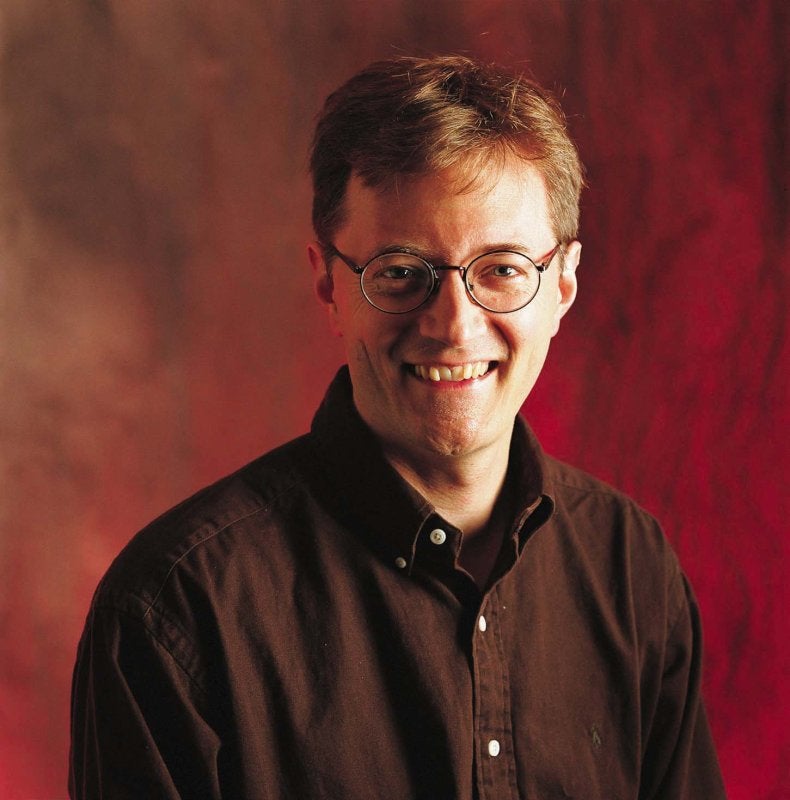
Michael Tiemann is a true open source software pioneer. He made his first major open source contribution more than three decades ago by writing the GNU C++ compiler, the first native-code C++ compiler and debugger. His early work led to the creation of leading open source technologies and the first open source business model.
In 1989, Tiemann's technical expertise and entrepreneurial spirit led him to co-found Cygnus Solutions, the first company to provide commercial support for open source software. During his ten years at Cygnus, Tiemann contributed in a number of roles from President to hacker, helping lead the company from fledgling start-up to an admired open source leader. When Cygnus was acquired by Red Hat in 2000, Tiemann became Red Hat's Chief Technical Officer (CTO) before becoming its first Vice President of Open Source Affairs. In that role Tiemann provides technology, strategy, and policy advice to executives in the public and private sectors.
Tiemann graduated from the Moore School at the University of Pennsylvania (Class of 1986) with a BS CSE degree, and later did research at INRIA (1988) and Stanford University (1988-1989).
Tiemann has served on a number of boards that have been instrumental in establishing Open Source as a leading development and commercial practice in the software industry. He joined the board of the Open Source Initiative in 2001 and served as its President from 2005-2012. Tiemann was also a founding board member of the Embedded Linux Consortium, the Eclipse Foundation, and an advisor to the GNOME Foundation. Tiemann provides financial support to organizations that further the goals of software and programmer freedom, including the Free Software Foundation and the Electronic Frontier Foundation.
He was also a Trustee of the University of North Carolina School of the Arts and a founding member of the Board of Advisors for the Center for Environmental Farming Systems (2006-present). Tiemann has also remained active in the Creative Commons community, as both a sponsor of projects and promoter of the cause.

Authored Comments
<p>Chris, if you like large-animal analogies analogies explaining corporate psychopathy (and therapy), you will love the latest book from Chip and Dan Heath, Switch. Here's an excerpt from <a href="http://www.amazon.com/review/R3JSPTZR4QSXHV/ref=cm_cr_rdp_perm">my wife's Amazon.com review</a>:</p><blockquote>"Switch" is a book for anyone from the grassroots, to cubicle nation, to CEOs. Most of the examples consciously focus on people who needed to effect significant change with little power and few resources available to them. How could a low-level NGO employee make a difference in alleviating the malnourishment of Vietnamese children, in only six months? By finding "bright spots," identifying children who were thriving, finding out what their mothers were doing differently, and spreading that knowledge to other families. Stories like this are both inspiring and practical for all of us. This is really what I appreciated most about "Switch." I found myself taking notes that were not only about the book itself, but about how I could apply this knowledge to challenges I am working on. The Elephant-Rider-Path metaphor helped me see my own work in a new light. What more can a reader ask for?</blockquote><p>I, too, found the book to be entirely consistent with my own experiences of change, both when successful (starting the world's first open source company) and not (convincing my co-founders that we should take 10% of our equity to buy Red Hat in 1995 instead of waiting 5 years for Red Hat to buy Cygnus with 10% of their equity).</p>
Chris, I think you have it really right: trust is the catalyst. I also believe that openness to participation is the architecture/design objective.
One other comment: I think that one reason that Fedora has been successful in bootstrapping such a large community has been trust in the Open Source Way itself. Sometimes sheer faith alone can move mountains.
But working with people you trust--community--is much less lonely and usually more rewarding than faith alone.